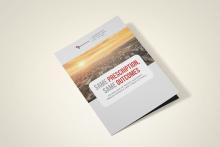Afronomicslaw Sovereign Debt Quarterly Brief, No. 7 of 2025: Same Prescriptions, Same Outcomes - An Analysis of Recent Austerity Trends During a Debt Crisis in Africa
This study analyzes trends in public debt and austerity in Africa, focusing on the period immediately preceding the COVID-19 pandemic (2018–19) to date (2023/2024). More specifically, it centers on countries at high risk of defaulting on their debt, those that have defaulted on their debt repayments during the pandemic and post-pandemic period, and those currently undertaking debt restructuring. The study further analyzes fiscal policy measures adopted by indebted countries, focusing on their impact on social spending and the well-being of populations in Africa. The selected countries for this study are Zambia, Ghana, Malawi, and Kenya.
